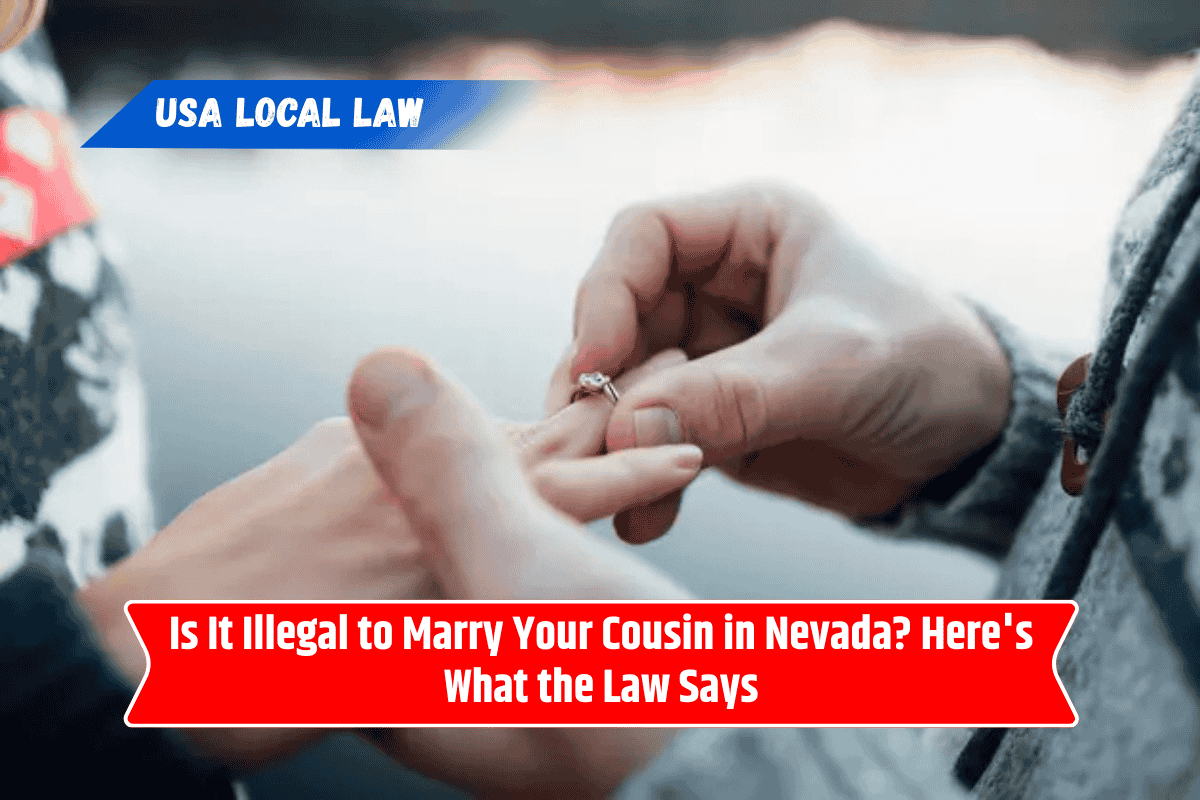Cousin marriage laws can be confusing because they vary from state to state. While it might be legal in one state, it could be completely banned in another. So, if you’re in Nevada and wondering whether it’s legal to marry your cousin, here’s a clear and simple guide based on Nevada state law.
Can You Legally Marry Your Cousin in Nevada?
No, you cannot legally marry your first cousin in Nevada. The state strictly prohibits marriages between close blood relatives, and this includes first cousins. Nevada law considers such marriages invalid, even if they’re consensual and both individuals are adults.
This restriction is outlined under Nevada Revised Statutes (NRS) § 122.020, which clearly states that:
“Marriages between ancestors and descendants, brothers and sisters, uncles and nieces, or aunts and nephews, whether by the whole or half blood, and between first cousins, are prohibited.”
What About Second or Distant Cousins?
Yes, marriages between second cousins or more distant relatives are legal in Nevada. The law specifically bans first-cousin marriages but does not restrict marriage between people who are not closely related by blood.
So if you and your cousin share a more distant relation—such as second cousins (sharing great-grandparents)—you can legally marry in Nevada.
Is Cousin Marriage Recognized If Legal in Another State?
This is where it gets tricky. If you legally marry your first cousin in a state where it’s allowed (like California or New York), and then move to Nevada, your marriage may still be recognized under the Full Faith and Credit Clause of the U.S. Constitution.
However, because Nevada explicitly prohibits cousin marriage, the state could refuse to acknowledge the marriage for certain legal purposes. This issue hasn’t been clearly settled in Nevada courts and might require legal interpretation.
To stay safe, it’s best to consult a family law attorney if you’re in this situation.
Why Is First-Cousin Marriage Banned in Nevada?
Nevada’s cousin marriage ban, like in many other U.S. states, is based on concerns about:
Genetic risks to children born from close-relative unions
Historical and cultural norms
The state’s desire to prevent incestuous relationships
While modern science suggests the risks of genetic disorders in first-cousin marriages are lower than once believed, many states—including Nevada—have kept the ban in place due to tradition and public policy.
Penalties for Marrying a First Cousin in Nevada
If a first-cousin marriage occurs in Nevada, it is considered void and has no legal effect. There may not be criminal penalties just for getting married, but:
The marriage can be declared invalid in court
Any legal rights (like inheritance or spousal benefits) may be denied
The couple may have to go through annulment or legal separation
It’s not a criminal offense unless fraud or misrepresentation is involved in the marriage license process.
In Nevada, it is illegal to marry your first cousin under state law, and such a marriage is considered invalid. While second-cousin or distant cousin marriages are allowed, anyone considering marrying a first cousin should understand the legal risks and consequences.
If you’re unsure about your specific situation—especially if your marriage took place in another state—it’s a smart idea to talk to a legal expert. When it comes to marriage laws, being informed means being protected.
